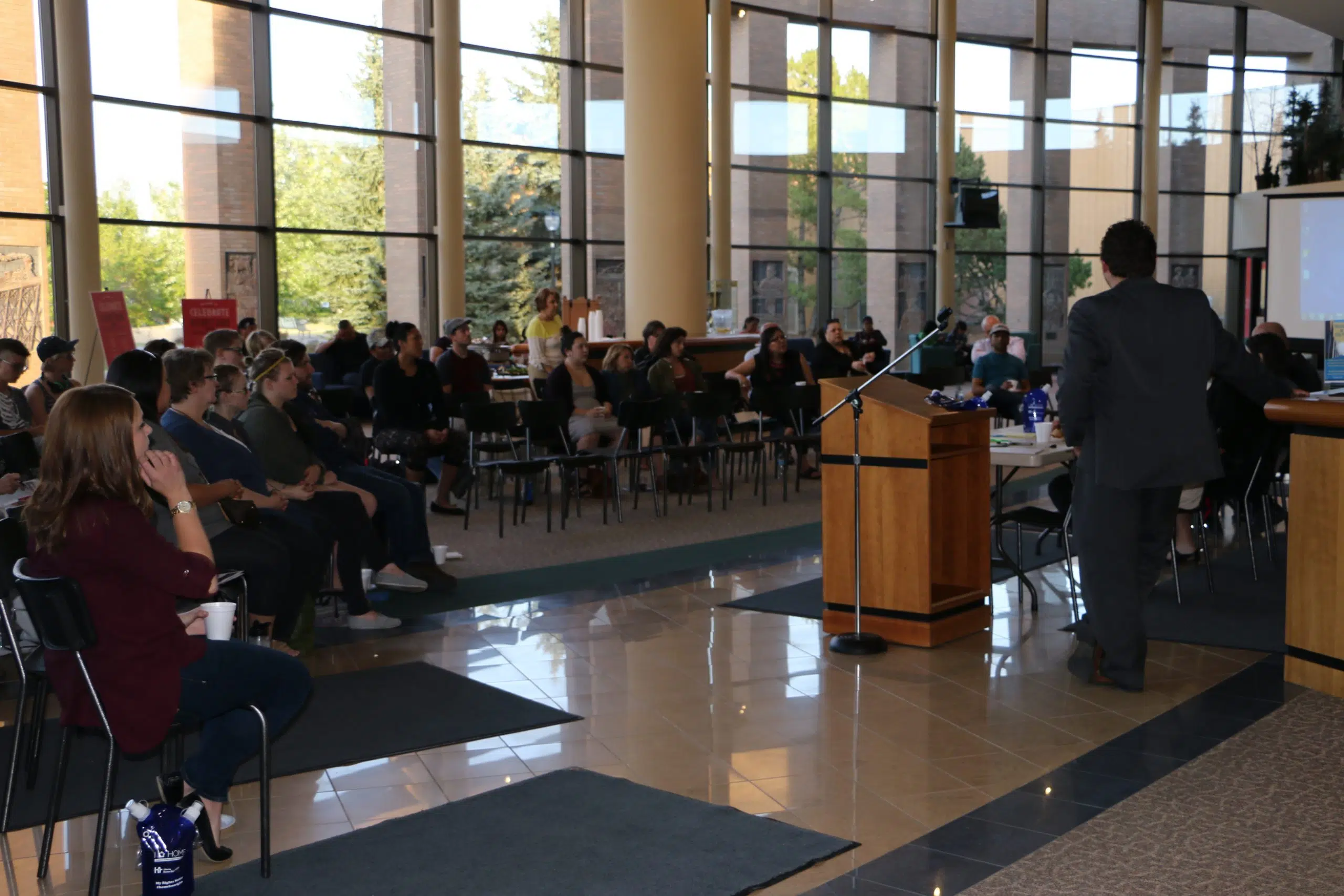
Panel Discussion Examines Homelessness and Addiction
LETHBRIDGE – “The homeless are the last of your worries… it’s the kids [the public] who you should be afraid of.”
This was the solemn rebuttal given after a comment, which called into question the safety of individuals who access community housing and shelters in Lethbridge.
This gentleman with experience battling poverty, racial stereotypes and addictions was undoubtedly addressing the apathetic treatment towards those living on the street.
The man looked upon the crowd with tired eyes, as he shared a story about his nephew who has fallen victim of racial discrimination in the city during his journey towards sobriety.


